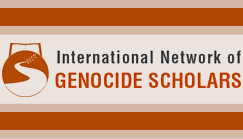Event Title
Military postcolonial paradox: The cases of Guatemala and Morocco
Submission Type
Paper
Abstract
Postcolonial armies need to portray themselves as the great benefactors and bearers of civilization. To accomplish this, to represent themselves as on the side of the people, armies forge complex relationships with vulnerable populations. This relationship can be best described as ‘postcolonial paradox’ a term I use in its sociological dimension to explain armies’ exploitative reliance on colonized groups to wage wars. Through a comparative approach of two seemingly disparate case studies, I examine this paradox which involves local sectors of the oppressed collaborating with the oppressor as auxiliary forces in their own class and ethnic annihilation
Military postcolonial paradox: The cases of Guatemala and Morocco
Postcolonial armies need to portray themselves as the great benefactors and bearers of civilization. To accomplish this, to represent themselves as on the side of the people, armies forge complex relationships with vulnerable populations. This relationship can be best described as ‘postcolonial paradox’ a term I use in its sociological dimension to explain armies’ exploitative reliance on colonized groups to wage wars. Through a comparative approach of two seemingly disparate case studies, I examine this paradox which involves local sectors of the oppressed collaborating with the oppressor as auxiliary forces in their own class and ethnic annihilation





Comments
View the agenda item.
View Marcia Esparza's bio.